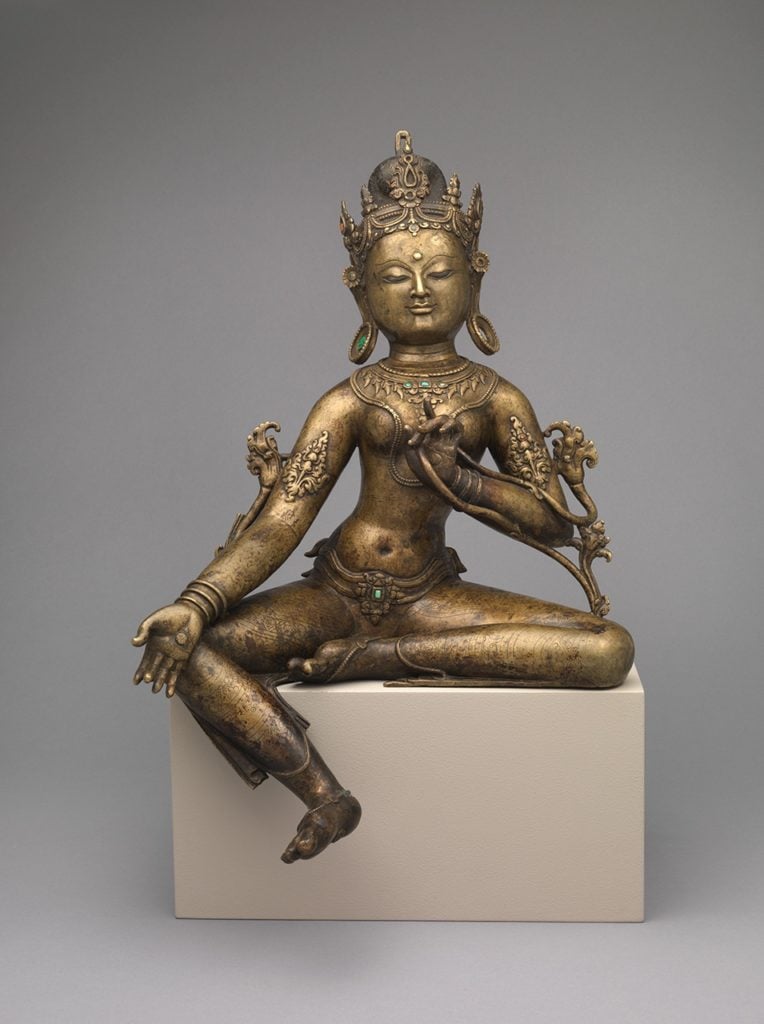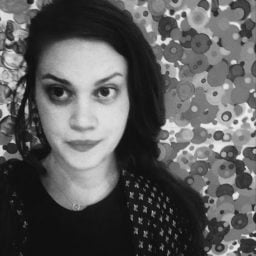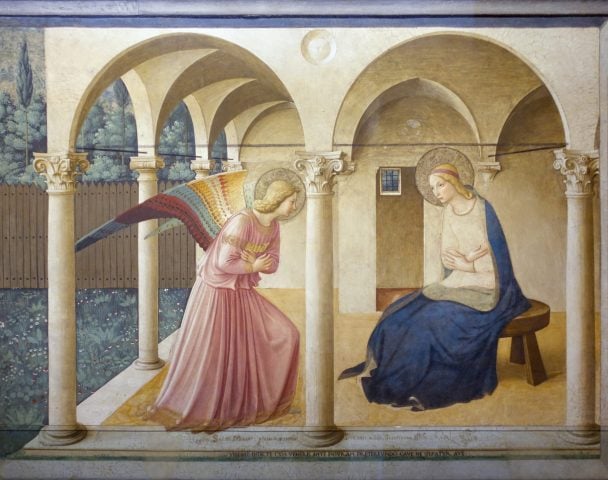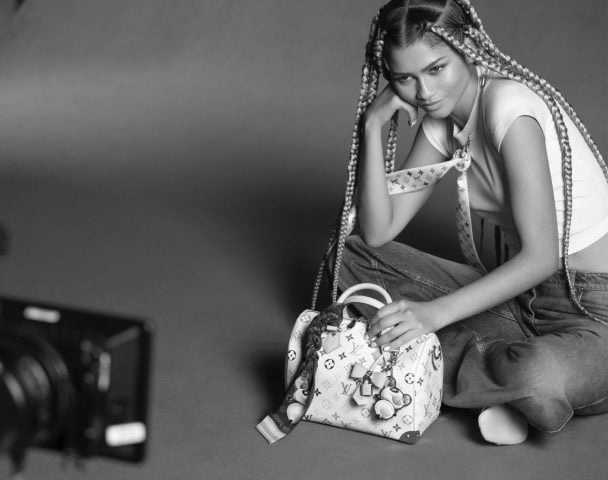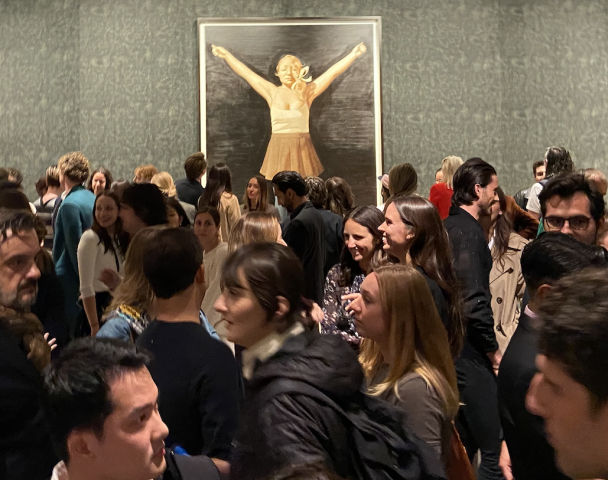Have you been wishing lately that you’d actually taken up meditation instead of just thinking about it all those years?
We’re feeling it too—as well as the anxious tension in our chests, the funky sleep patterns, and, yes, the sheer boredom of staring at the same four walls for yet another day. When you also remember that all the art you so dearly love is stowed away inside shuttered art museums, galleries, and studios, it makes you just want to cry.
But despair not! The Rubin Museum of Art is here to help you stay centered (even while it’s closed) with a recently launched series titled the Daily Offering. An informative, 10-minute episode is posted on the museum’s Instagram page every Thursday through Monday (the days the museum would have been open).
With soothing intro music and calming rhythmic voices, the videos are just what we didn’t know we needed, with all variety of chilling out, from musical performances to guided meditation. Here’s a quick guide to the tips we’ve learned so far—but make sure to tune in for new episodes, too!
The Quieting Power of Art
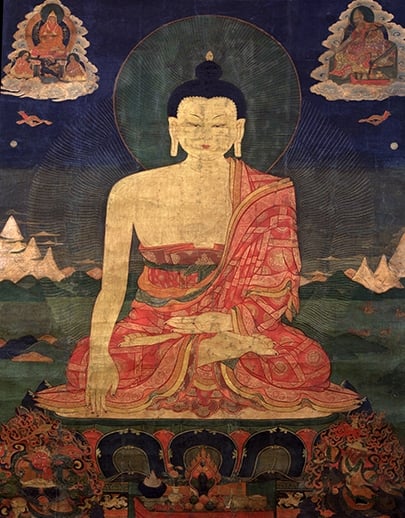
Shakyamuni Buddha (16th century). Courtesy of the Rubin Museum of Art.
Each Daily Offering starts with an up-close look at an artwork in the Rubin Museum collection. Whether it’s through a formal analysis uncovering the magic of the Buddha’s seated posture, or an eye-opening examination of Tibetan medical thangkas, Rubin Museum curator Elena Pakhoutova and director of digital experiences Jamie Lawyer lead us in an exercise in focused, calming observation. And it’s not just about visual art, either: the series also features hypnotic musical performances from the Brooklyn Raga Massive collective that will quiet racing minds.
Meditation for Those With Short Attention Spans
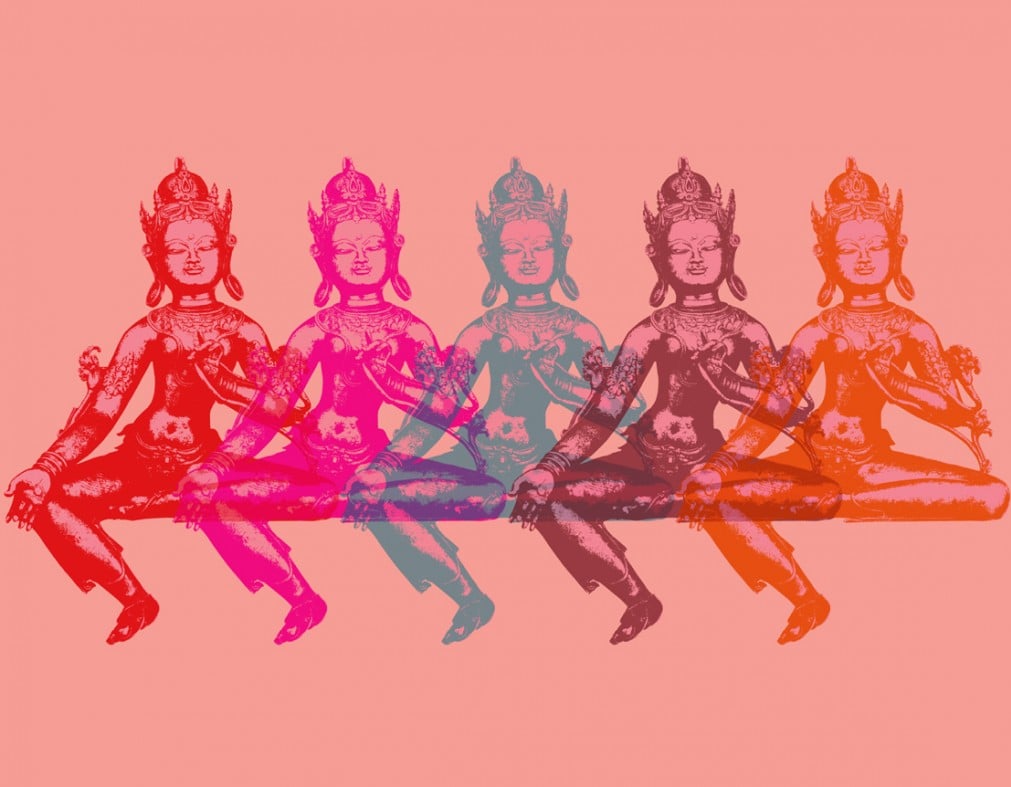
Courtesy of the Rubin Museum of Art.
Are you a meditation school drop-out? Fear not. The Rubin makes meditation easy with guided bite-size lessons that ease listeners into the practice through artworks. In the first Daily Offering, the museum’s head of programs, Dawn Eshelman, teaches us about Tara, the most important female figure in Buddhism, a bodhisattva who reached enlightenment but chose to stay on earth and help her fellow human beings achieve their own mental freedom.
Meditation teacher and author Sharon Salzberg then leads a brief meditation while participants gaze at a 13th-century sculpture of Tara. Salzberg reminds listeners simply to take the time to remember to breathe. “Sometimes we get frozen,” she says while encouraging us to take time to reflect. (In week three of the series, meditation teacher Kate Johnson leads a new set of sessions.)
If you’d like to take your fledgling practice further, the museum’s Buddhist Shrine is accessible at all times. Interested virtual visitors can choose between a two-hour video recording, accompanied by Buddhist chants and flickering candlelight, or a self-guided virtual tour of the space, where you can take time to learn about the individual objects on the altar.
Ancient Immunity-Boosting
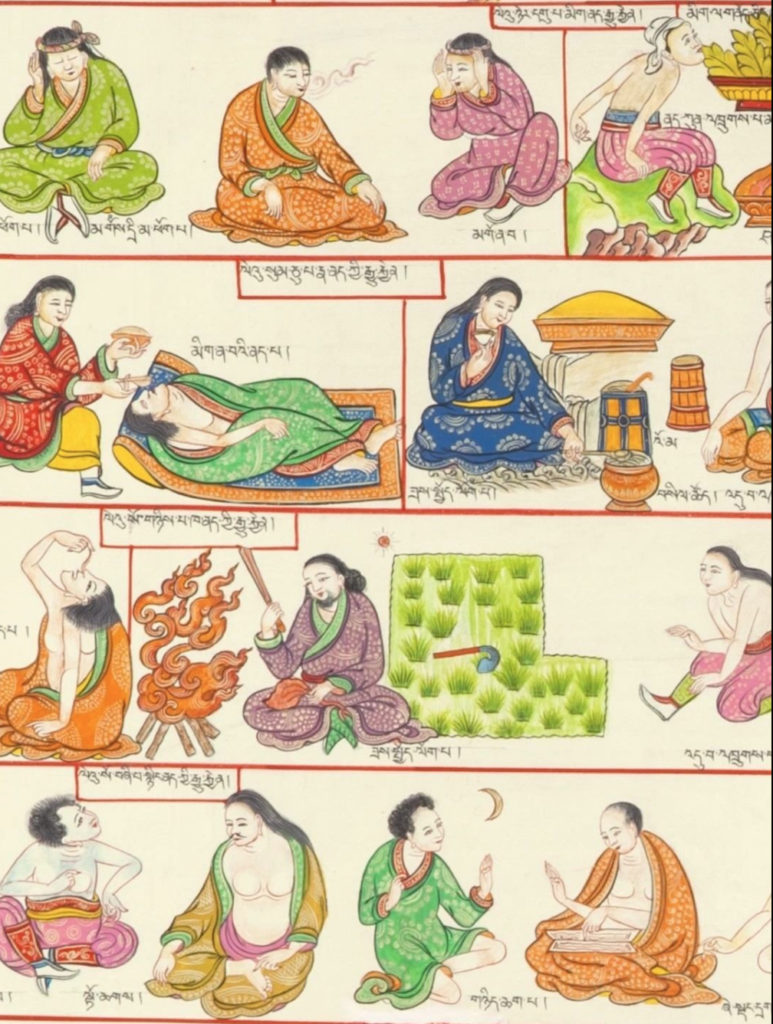
Buddhist Thangka. Courtesy of Rubin Museum of Art.
If you’re anything like us, you’re digging into your quarantine treats all the time. No need to worry. Dr. Tawni Tidwell is here to help you get back on track with ancient Tibetan wisdom about healthy habits that can also help you fight opportunistic infections and strengthen your natural immunity.
Trying to keep mindless, chaotic thoughts at bay? Time to up your intake of bitter greens: kale, broccoli, endives, and the like. Tidwell even shares tips on preparation. She especially emphasizes the mind-body connection and how environmental conditions and emotional responses can affect our health (and vice versa). And with a sudden clip of cold weather upon us, we’re especially looking forward to just sipping a mug of hot water. It’s the first Eastern medicine, and certainly the simplest one.
Stay tuned for more episodes here.
